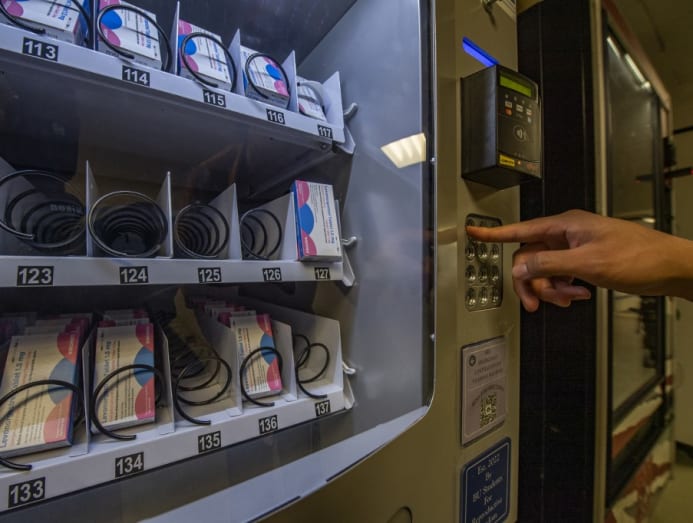Rohit Sahgal, founder of a health platform serving as technical advisor to the World Health Organization, said that in Singapore, women's awareness and knowledge of contraceptive options is "complex to assess" and that knowledge of a given method of contraception "does not translate into use".
"Basic, flawed and anecdotal knowledge" of a particular contraceptive method "crowds out reliable information", said Rohit.
As a result, society is "simultaneously experiencing a rise in premarital and extramarital sexual activity, and a stagnation in uptake of contraceptive methods", he said, adding that this is just as true in Singapore as it is across the Causeway and elsewhere in Asia.
This leads to some women still struggling with unplanned pregnancy.
The KK Women's and Children's Hospital (KKH) told CNA Women recently that the majority of its patients seek contraception from doctors only after undergoing an abortion.
“Only a small percentage of our patients are aware of the various options of contraception and seek our medical expertise for family planning,” said Dr Wan Kai Jing, an associate consultant in KKH's Department of Obstetrics and Gynaecology.
"EXTREMELY TABOO"
"In Asia – of which Singapore is a fairly representative microcosm – sexual and reproductive health is an extremely taboo subject, confined to the realms of humour and awkward discussions," said Rohit, whose work with the platform Voices Project Asia involves research and analysis of health issues in partnership with public and private sectors in the region.
"The idea of discussions and public health campaigns encouraging women to consider matters of contraception independently and in the context of their own health is a new phenomenon in our region, and this translates into a lack of a strong informational ecosystem," he said.
Sex education in Singapore, for instance, promotes abstinence from premarital sex, a practice founded on its “prevailing family values and social norms”, according to the Ministry of Education (MOE) website.
Talk of contraception mainly happens during Science lessons in secondary school, during which "students are taught about how temporary methods such as birth control pills, intrauterine devices and condoms, as well as permanent methods like vasectomy and ligation can prevent conception", an MOE spokesperson told CNA Women.
"Issues such as abortion and prevention of sexually transmitted infections through contraception are also raised in these classroom discussions," the spokesperson added.
“While women’s health has come a long way, there is still a social stigma attached to the discussion and use of contraception in Singapore,” said Dr Wan, adding that the health ministry is now working towards putting out more information about effective contraception and safe sex practices.
Dr Shilla Mariah Yussof, a local gynaecologist with her own women’s clinic in Tanjong Katong, agreed.
“I guess although we are a very highly educated population, our Asian culture still precludes us from discussing the matter of sexual education as freely as we should.
“However, times are changing and I’m heartened to see more patients, and even more friends and family, taking a more open-minded approach to such discussions,” she said.

